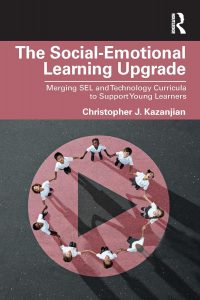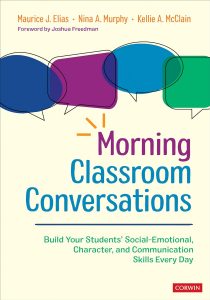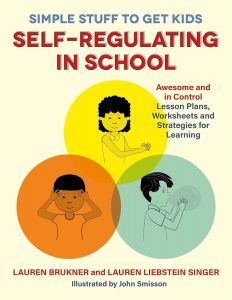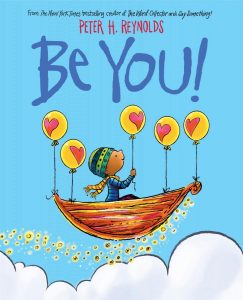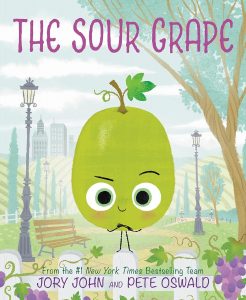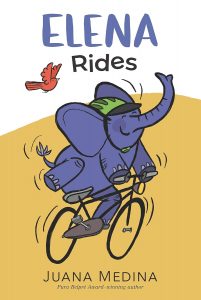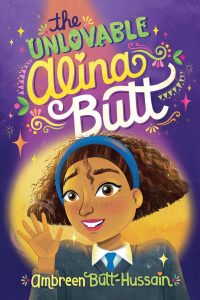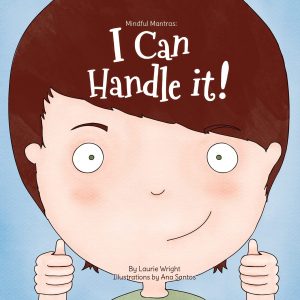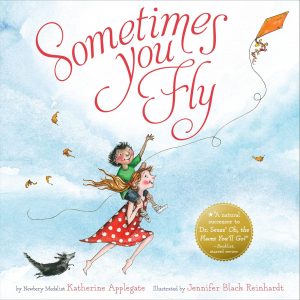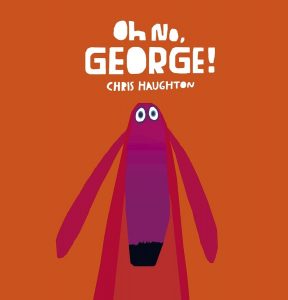Personal and Social is one of the three Core Competencies in the BC curriculum. Personal Awareness and Responsibility is one of three sub-competencies in this area.Listed below are selected resources for teachers, picture books, fiction, and non-fiction related to Personal Awareness and Responsibility.
Les compétences personnelles et sociales sont l’une des trois compétences de base du programme d’études de la BC. La conscience et la responsabilité personnelles sont l’une des trois sous-compétences de ce domaine. La conscience et la responsabilité personnelles sont l’une des trois sous-compétences de ce domaine. Vous trouverez ci-dessous une sélection de ressources pour les enseignants, des livres d’images, des ouvrages de fiction et des ouvrages non romanesques en rapport avec la conscience et la responsabilité personnelles.
Ressources pour les enseignant (Teacher Resources)
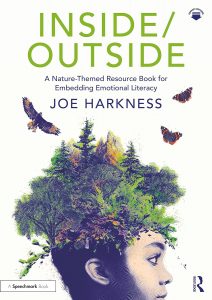 Inside/Outside: A Nature-Themed Resource Book for Embedding Emotional Literacy,
Inside/Outside: A Nature-Themed Resource Book for Embedding Emotional Literacy,
by Joe Harkness
Niveau scolaire (Grade level): 5 – 11
Inside/Outside is a unique educational resource for those working with young people of secondary school age, providing a variety of tried-and-tested indoor and outdoor lessons and activities to promote and embed emotional literacy.
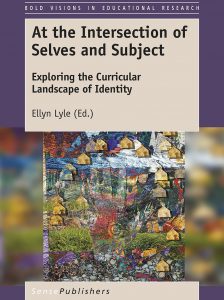 At the intersection of selves and subject: exploring the curricular landscape of identity,
At the intersection of selves and subject: exploring the curricular landscape of identity,
by Ellyn Lyle
Niveau scolaire (Grade level): K – 12
Exploring the Curricular Landscape of Identity aims to raise awareness of the inextricability of our teaching and learning selves and the subjects with whom and which we engage.
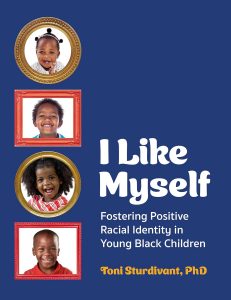 I like myself: fostering positive racial identity in young Black children,
I like myself: fostering positive racial identity in young Black children,
by Toni Sturdivant
Niveau scolaire (Grade level): Préscolaire
Supplementing and complementing any curriculum, this critical resource provides information across social-emotional, academic, and fine arts domains that stay faithful to curricular goals while specifically targeting the racial identity needs of Black preschoolers.
by Christopher J. Kazanjian,
Niveau scolaire (Grade level): K – 12
Driven by a paradigm that synthesizes multicultural education and humanistic psychology, this book readies educators to implement SEL curricula that will support young learners as they navigate constant social and technological flux and that will nurture their unique perceptions of reality, their aspirations, and their mental and physical health.
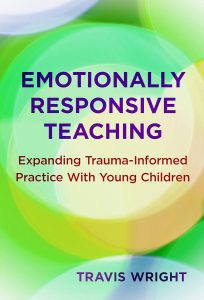 Emotionally responsive teaching: expanding trauma-informed practice with young children,
Emotionally responsive teaching: expanding trauma-informed practice with young children,
by Travis Wright; foreword by Mary Benson McMullen
Niveau scolaire (Grade level): Préscolaire – 3 (Pre-K – 3)
Framing this work as emotionally responsive teaching (ERT), this book expands current conceptualizations of trauma-informed practice to encompass more broadly the relational demands of supporting young children with challenging life circumstances.
by Maurice J. Elias, Nina A. Murphy, & Kellie A. McClain; foreword by Joshua Freedman
Niveau scolaire (Grade level): K – 12
When you make Morning Classroom Conversations (MCCs) a regular part of your homeroom or advisory period, you give students a safe space to practice critical and creative thinking, build active listening skills, learn to respectfully disagree with others, and strengthen peer relationships… all while improving overall classroom climate.
by Lauren Brukner & Lauren Liebstein Singer
Niveau scolaire (Grade level): K – 6
Packed with photocopiable lesson plans and tried and tested strategies, this illustrated guide is the ideal companion for teachers and therapists wishing to help kindergarten and elementary school children to self-regulate.
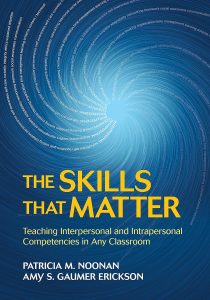 The skills that matter: Teaching interpersonal and intrapersonal competencies in any classroom,
The skills that matter: Teaching interpersonal and intrapersonal competencies in any classroom,
by Patricia M. Noonan & Amy S. Gaumer Erickson
Niveau scolaire (Grade level): 5 – 12
The authors focus on six key inter- and intra-personal competencies that can support middle- and high-school students’ development: self-regulation, goal-setting, self-efficacy, assertiveness, conflict management, and networking.
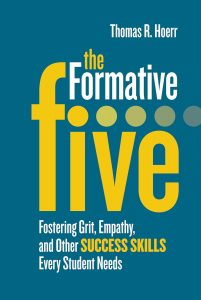 The formative five: Fostering grit, empathy, and other success skills every student needs,
The formative five: Fostering grit, empathy, and other success skills every student needs,
by Thomas R. Hoerr
Niveau scolaire (Grade level): K – 12
For success in school and life, students need more than proficiency in academic subjects and good scores on tests; those goals should form the floor, not the ceiling, of their education. To truly thrive, students need to develop attributes that aren’t typically measured on standardized tests.
Les livres d’images (Picture Books)
by Peter H. Reynolds
Niveau scolaire (Grade level): Préscolaire – 3 (Pre-K – 3)
Discover a joyful reminder of the ways that every child is unique and special. Here, Reynolds reminds readers to “be your own work of art.” To be patient, persistent, and true. Because there is one, and only one, YOU.
by Jory John & Pete Oswald
Niveau scolaire (Grade level): Préscolaire – 3 (Pre-K – 3)
The Sour Grape holds grudges for every reason under the sun. Lime never returned a scarf they borrowed? Grudge! Orange never called back? Grudge! But when a friend holds a grudge against the Sour Grape without listening to an explanation, the Sour Grape realizes how unfair grudges can be.
by Juana Medina
Niveau scolaire (Grade level): Préscolaire – 1 (Pre-K – 1)
Elena wants to ride her bike. She readies, she steadies. She wobbles, she bobbles … KA-BANG! Learning to ride a bike is hard. But Elena can do it. Try, try again!
 From my head to my toes, I say what goes,
From my head to my toes, I say what goes,
by Charlotte Barkla & Jacqui Lee
Niveau scolaire (Grade level): Préscolaire – 1 (Pre-K – 1)
The book discusses consent and control for a young audience, through a story that is bold and beautiful, loud and proud.
by Ambreen Butt-Hussain
Niveau scolaire (Grade level): 4 – 7
Eleven-year-old Alina Butt has changed schools four times already since her family moved to England from Pakistan. Even after all that practice, she doesn’t seem to be getting any better at being the new kid. Mocked for her last name and her “weird” lunches, Alina has had enough!
by Laurie Wright; illustrated by Ana Santos
Niveau scolaire (Grade level): Préscolaire – 3 (Pre-K – 3)
Can Sebastien handle his problems? Of course he can, with the help of a mindful mantra! He could try something silly, or he could try something funny! Chances are whatever his problem may be, he can handle it.
by Katherine Applegate; illustrated by Jennifer Black Reinhardt
Niveau scolaire (Grade level): Préscolaire – 2 (Pre-K – 2)
This book celebrates the achievements of childhood, from first birthdays to graduation, and reminds readers that learning from mistakes makes success sweeter.
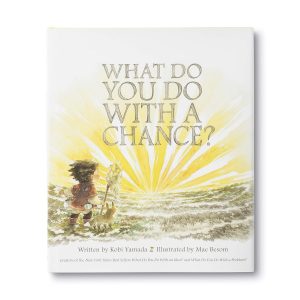 What do you do with a chance?,
What do you do with a chance?,
by Kobi Yamada; illustrated by Mae Besom
Niveau scolaire (Grade level): K – 3
A chance encounter shows a child that when you get brave, take chances, and say yes to new experiences, amazing things can happen.
by Chris Haughton
Niveau scolaire (Grade level): Préscolaire – 1 (Pre-K – 1)
George the dog has every intention of behaving well while his owner Harry is out for the day. But it’s so hard when there are cakes and cats and flowers around.
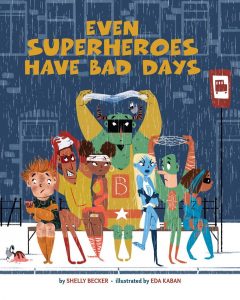 Even superheroes have bad days,
Even superheroes have bad days,
by Shelly Becker; illustrated by Eda Kaban
Niveau scolaire (Grade level): Préscolaire – 4 (Pre-K – 4)
It’s true – even young superheroes have bad days! So what do they do to control their emotions and not cause a super-scene or have a super-tantrum? See what ideas they have that you can use too.
Trouver d’autres ressources
Voici quelques conseils pour trouver d’autres ressources dans ce domaine :
- Sur la page principale du site de la bibliothèque de l’UBC, utilisez la boîte de recherche générale pour rechercher des matériaux à travers toutes les succursales de la bibliothèque de l’UBC.
- Pour limiter vos résultats aux matériels disponibles à la Bibliothèque de l’éducation, visitez le site web de la Bibliothèque de l’éducation et effectuez une recherche à l’aide de la case “Search Education Resources” située dans la bande à gauche de l’écran.
- Remarque : les ressources étant principalement cataloguées en anglais, les termes ci-dessous donnent généralement plus de résultats que les recherches effectuées en français. Vous pouvez filtrer votre liste de résultats par langue dans la barre latérale de gauche.
- Utilisez des termes de recherche spécifiques, tels que
- “personal responsibility”, “personal awareness”, “affective education”, “moral education”, ou “social skills AND study and teaching”
- Pour trouver des plans de cours, incluez “lesson plans”, “lesson planning”, or “activity programs” dans vos termes de recherche.
Finding More Resources
To find more resources in this area, try the following:
- Search using the General tab on the UBC Library website to look for material in all UBC Library branches.
- Search using “Search Education Resources” box in the left hand bar on the Education Library website to limit your results to physical materials in the Education Library.
- Use specific search terms, such as
- “personal responsibility”, “personal awareness”, “affective education”, “moral education”, or “social skills AND study and teaching”
- To find lesson plans, include “lesson plans”, “lesson planning”, or “activity programs” in your search terms.
